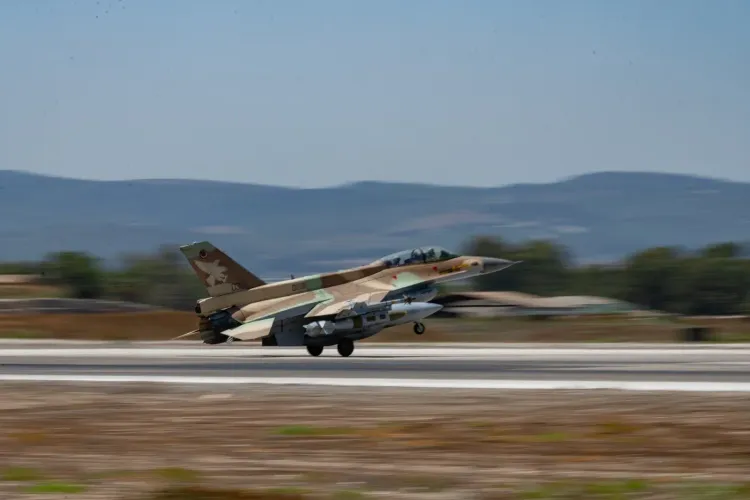Did More than 50 Fighter Jets Target Military Sites in Tehran?

Synopsis
Key Takeaways
- The Israeli Defence Forces launched strikes involving over 50 fighter jets.
- Targets included military headquarters, missile production sites, and storage facilities.
- Israeli Prime Minister Netanyahu reaffirmed ongoing military operations in the region.
- The operation aimed to disrupt Iran's military capabilities and national security functions.
- Political reactions in Iran suggest a heightened state of alert regarding security measures.
Tel Aviv, June 23 (NationPress) The Israeli Defence Forces (IDF) reported on Monday that their Air Force fighter jets, utilizing precise intelligence from the IDF Intelligence Directorate, targeted critical command centers and assets linked to Iran's internal security forces and the Iranian Islamic Revolutionary Guard Corps (IRGC) in Tehran. "Over 50 fighter jets conducted strikes on military objectives in Tehran as part of the IDF's comprehensive operations to undermine the Iranian regime’s military capabilities. The Israeli Air Force, guided by the Intelligence Directorate, attacked Iranian military headquarters, missile and radar production facilities, as well as missile storage sites in Tehran.
The IDF disclosed that several military headquarters of the Iranian regime were targeted, including the "Tharallah" headquarters, which is the primary base for the Revolutionary Guards aimed at protecting Tehran from security threats, including internal disturbances. Furthermore, the "Sayed Al-Shahada" Brigade, also under the Revolutionary Guards and tasked with national defense, was targeted in the strikes.
The IDF emphasized that it has escalated its operations against the Iranian regime's military strength and will persist in its actions to safeguard the State of Israel.
During the operation, a significant IRGC base, the Basij headquarters, was struck. This headquarters is known not only for its military functions but also for enforcing Islamic law and reporting civilian violations to the regime.
Additionally, the Alborz Corps, responsible for maintaining security across several cities in the Tehran district and ensuring regime stability, was also targeted. The Israeli forces aimed at the Intelligence and General Security Police, part of the Iranian military apparatus.
These attacks are designed to cripple the Iranian regime's military capabilities and its control, as these command centers play an essential military role.
The IDF further reported that it struck six regime airports in western, central, and eastern Iran, damaging runways, underground hangars, and several aircraft, including F-14, F-5, and AH-1 models.
According to the IDF, "The destroyed aircraft were intended to counter IAF jets. The IAF has impaired operational capabilities from these airports, limiting the Iranian military's air force functions.
On Sunday, Israeli Prime Minister Benjamin Netanyahu affirmed that Israel will persist with its operations. "Israel will continue to operate vigorously in both Iran and Gaza," he stated, pledging not to be drawn into a protracted conflict.
"We will not halt this historic operation until we achieve our objectives," Netanyahu declared.
Recent reports indicated that a day following U.S. strikes on Iran's nuclear facilities, the Iranian parliament voted in favor of closing the Strait of Hormuz, a crucial global oil transit route. However, any final decision on retaliation will be made by the country's Supreme National Security Council.










